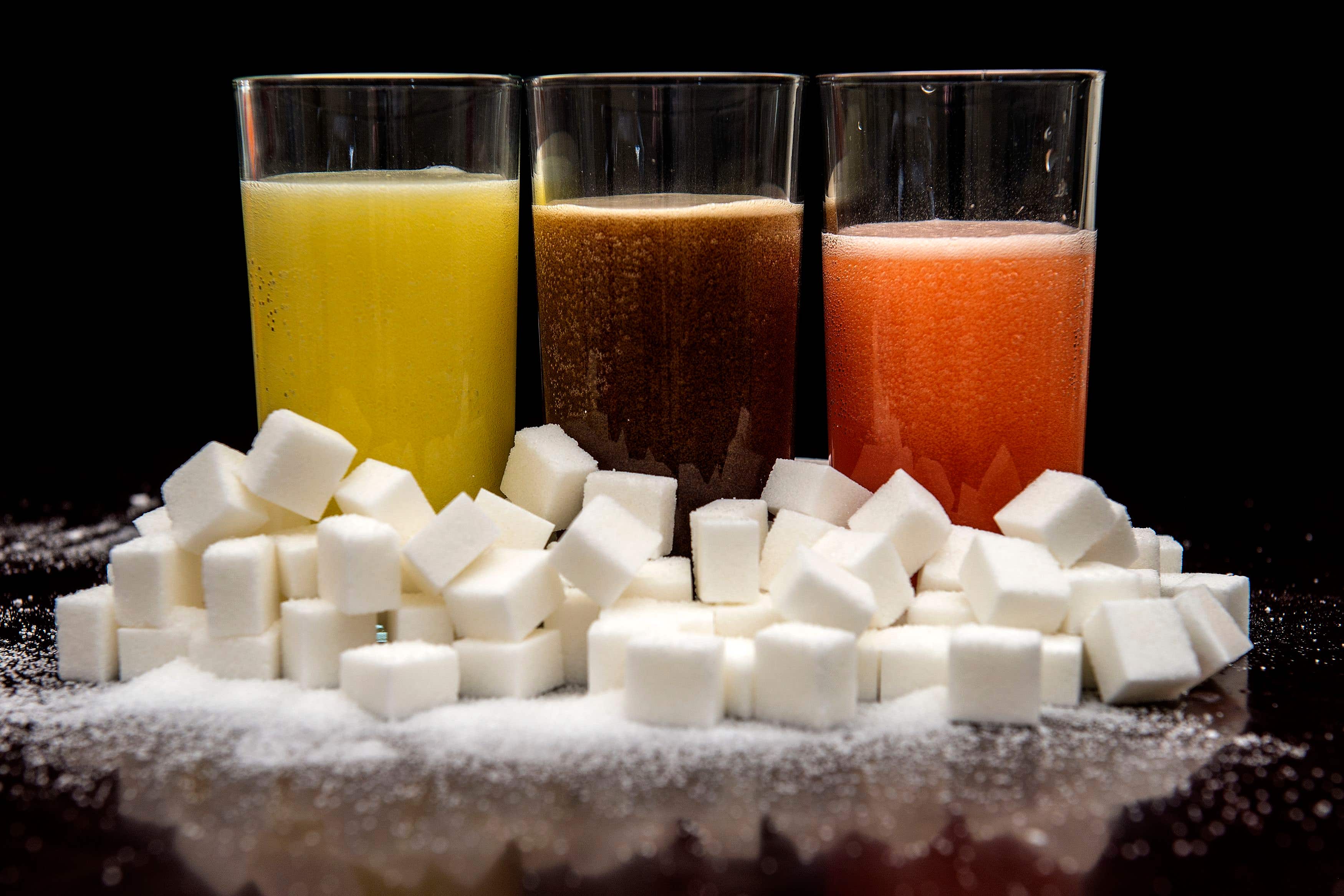Limit sugary drinks to one per week, researchers say
Academics said that limiting sugar intake can have significant health benefits.

Your support helps us to tell the story
From reproductive rights to climate change to Big Tech, The Independent is on the ground when the story is developing. Whether it's investigating the financials of Elon Musk's pro-Trump PAC or producing our latest documentary, 'The A Word', which shines a light on the American women fighting for reproductive rights, we know how important it is to parse out the facts from the messaging.
At such a critical moment in US history, we need reporters on the ground. Your donation allows us to keep sending journalists to speak to both sides of the story.
The Independent is trusted by Americans across the entire political spectrum. And unlike many other quality news outlets, we choose not to lock Americans out of our reporting and analysis with paywalls. We believe quality journalism should be available to everyone, paid for by those who can afford it.
Your support makes all the difference.People should try to only have one sugary drink a week, researchers have said after a new study linked high levels of sugar consumption to a wide range of health conditions.
For each extra sugary drink per week, people can increase their odds of suffering a number of conditions, the authors said.
They said that high sugar consumption is “generally more harmful than beneficial for health”.
And the authors also called for more research into the links between high sugar consumption and cancer after the study suggested a link between the two.
High dietary sugar consumption is generally more harmful than beneficial for health, especially in cardiometabolic disease
Academics in China and the US conducted an “umbrella review” on the health impacts of sugar intake.
This means that they examined evidence from multiple existing reviews of evidence and in total examined data from 73 meta-analyses involving 8,601 studies.
The evidence review, published in The BMJ, suggested that higher sugar intake was linked to 45 heath outcomes.
The authors found “significant harmful associations” between dietary sugar consumption and diabetes, gout, obesity, high blood pressure, heart attacks, strokes, asthma, tooth decay, depression, premature death and some cancers – including breast, prostate and pancreatic cancer.
And when the researchers looked specifically at sugar-sweetened beverages they found “moderate” evidence to suggest that people who drank the highest number of sugary drinks were more likely to have a higher body weight compared to those who drank the fewest.
They said that “low quality evidence” linked each extra sugar-sweetened beverage each week with a 4% higher risk of gout.
And each additional sugar-sweetened drink per day was linked to a 17% higher risk of coronary heart disease and a 4% higher risk of death during a study follow-up period of the studies reviewed.
Meanwhile, every 25 g/day increment of fructose intake was associated with a 22% increased risk of pancreatic cancer, the review suggests.
The authors, led by experts from Sichuan University in China, said these findings – combined with Wold Health Organisation, World Cancer Research Fund and American Institute for Cancer Research guidance – suggest reducing the consumption of added sugars to below 25 g/day, approximately six teaspoons a day, and limiting the consumption of sugar-sweetened beverages to less than one serving a week.
The NHS says that adults should have no more than 30g of free sugars a day, roughly equivalent to seven sugar cubes.
It suggests that people should reduce sugar consumed through drinks and advises people to “go for water, lower-fat milk, or sugar-free, diet or no-added-sugar drinks” as alternatives.
“If you prefer fizzy drinks, try diluting no-added sugar squash with sparkling water,” the NHS website adds.
The authors of the latest study wrote: “High dietary sugar consumption is generally more harmful than beneficial for health, especially in cardiometabolic disease.
“This umbrella review shows that high dietary sugar consumption, especially intake of sugars that contain fructose, is harmfully associated with large numbers of health outcomes.
“Evidence for the harmful associations between dietary sugar consumption and changes in body weight (sugar sweetened beverages), ectopic fat accumulation (added sugars), obesity in children (sugar sweetened beverages), coronary heart disease (sugar sweetened beverages), and depression (sugar sweetened beverages) seems to be more reliable than that for other outcomes.
“Evidence of the association between dietary sugar consumption and cancer remains limited but warrants further research.
“We recommend reducing the consumption of free sugars or added sugars to below 25 g/day (approximately six teaspoons a day) and limiting the consumption of sugar sweetened beverages to less than one serving a week (approximately 200-355 mL/week).
“To change sugar consumption patterns, especially for children and adolescents, a combination of widespread public health education and policies worldwide is urgently needed.”